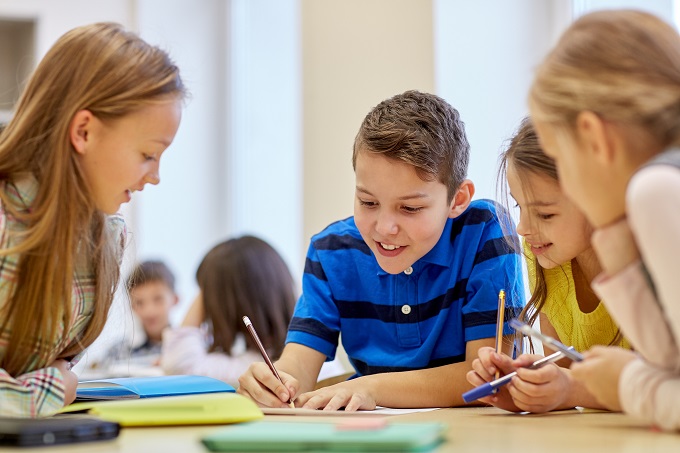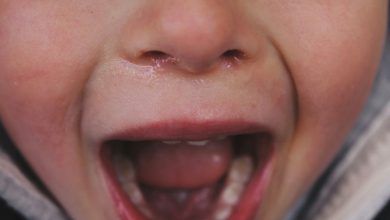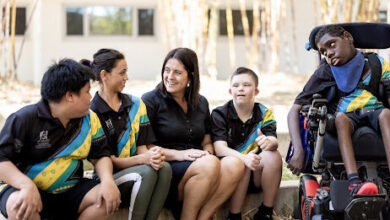Returning to school after lockdown: Ten ways to support students’ mental health and wellbeing
As students return to school following lockdown, it is likely they will continue to experience the consequences of this year’s disruption to regular routines, family functioning and social relationships.

During the initial phases of lockdown, due to the speed and severity of restrictions, many would have experienced increased levels of anxiety, followed by boredom, frustration and the challenges of online education and reduced interaction with wider family and peers.
This story first appeared in our new print magazine! Check out your staff room copy.
As lockdown ends, despite the relief of returning to previous routines, they will face the challenge of readjusting to the school environment, schedule, and social roles. Many, especially those with pre-existing health issues, will also have to manage reality-based and media-amplified concerns about their health. The cumulative effects of personal stress, family stress and wider societal changes are likely to be dependent on personal characteristics, immediate circumstances, and socio-economic factors.
The true costs and opportunities implicit in this unusual year are unlikely to be understood for quite some time.
Still, educational staff, teachers, school nurses, school counsellors and others, are well positioned to support the mental health and wellbeing of students following the return to school. Here are ten ways in which they may do so:
- Encourage the celebration of achievements.
Encourage students to celebrate how well they have done to get through lockdown with their communities and thereby limit the spread of the virus. This will help them learn a lifelong lesson about the value of teamwork.
- Acknowledge the ‘new normal’.
Students should be encouraged to remember that although the country is coming out of lockdown, things are not returning to the ‘old normal’, and instead they are heading into a ‘new normal’ for the coming months. So, this may take some preparation, adjustment, and care.
- Expect a variety of reactions.
Just as for adults, moving out of lockdown is likely to result in different reactions for different students. Some will be thrilled to spend time with their friends; others will be dreading going back to regular classes at school; some will be dying to get back to sports; others will be anxious about catching COVID-19 after weeks of staying away from people and relentlessly washing their hands. Students should know that it is okay to feel however they fell, but that it is important to manage these feelings so that they can achieve the things they need to do.
- Encourage students to practice kindness.
It is also important for students to continue practicing kindness toward other people, as learnt by them and modelled by others during lockdown. Finding small and regular ways to do so in the school environment would be useful.
- Support students to settle into new routines.
Most children would have experienced the joys and difficulties of returning to school after the long school holidays. Some, such as those with conditions like anxiety and autism spectrum disorder, may take longer to settle into school routines. Educators should think about what they can do to help them settle into new routines, rather than expecting them to manage the transition unsupported.
Tips for re-socialisation include getting children to spend time with one or a few classmates before returning to school (so they get used to being with people outside of their ‘bubble’), paying a short visit to their school, and starting with half days rather than full days.
- Manage academic expectations.
Some students would have kept up with academic work via online learning. Others may have had to endure missed meals, family stress and technological challenges, and therefore fallen behind. Appraising individual needs on return to school and trying, as best as possible, to provide additional support or time for the latter group will help to minimise post-lockdown academic anxiety and to ensure more equitable results.
- Identify students who are not coping early.
Students may show different signs of struggling, depending on their age and developmental stage. Some children may regress (act like a younger version of themselves) and others may act out (display worse behavior, such as refusal to follow instructions, verbally abusing siblings, or damaging property). Adolescents may act out in different ways, for example using substances, or they may internalise their stress and experience symptoms of anxiety or low mood.
Being alert about the mental health of students during the next few months would be wise. Some schools already undertake routine psychosocial screening of Year 9 students using face-to-face HEEADSSS assessments or electronic assessments such as YouthCHAT (echat.fmhs.auckland.ac.nz/).
Others may wish to review their methods of early identification and available school-based or local supports.
- Support those with mild-moderate needs to access assistance online or at school.
Online options for self-help include Calm® (an app to help people of all ages relax; Headspace®, a guided meditation app; Sparx®, an NZ-developed fantasy computer game that aims to help treat adolescent depression. All three are free to access. For more evidence-based eHealth interventions, check out the One Mind Psyberguide website.
School-based supports include school nurses, school counsellors, other staff members with pastoral care roles and peers. Educate or remind students about how to access them if needed.
- Support those with greater needs to access help elsewhere.
External face-to-face options may be accessed via GPs, the national counselling helpline 1737, non-government organisation (NGO) therapists or primary care psychologists. For a comprehensive list, see the Healthpoint website.
Referral to an infant, child and adolescent mental health service is appropriate if screening tools or other assessment indicate students are experiencing moderate-severe symptoms, especially if there is any immediate risk to themselves or to/from others.
- Educators should look after their own health.
Finally, although it might seem like the pressures of lockdown are over, many adults may find that the cumulative stresses of transitioning to online work, managing the demands of their personal and family situations and returning to new routines may belatedly catch up with them. Signs of this may include feeling generally irritable or disgruntled with life, sleeping poorly, and becoming low in mood. Some may even develop frank biological and cognitive symptoms of depression. In addition, lockdown coping habits may have to be gracefully discarded.
Educators should be supported to access necessary help so that they can be optimally available to students and get through the coming months together.






